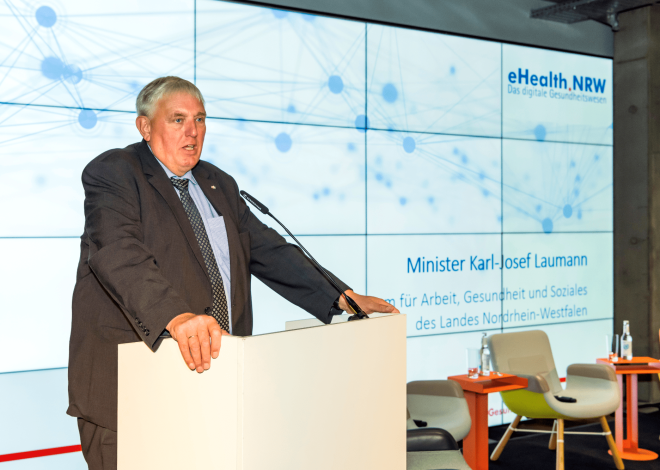
Personalized medicine – treating patients individually
Every patient is different. And yet medicine usually treats them the same, using established standard procedures. Wouldn’t it be better if the therapy was as individual as the patients?
Download audio (26.3 MB | MP3)
Personalized medicine instead of focusing on the average patient
One of the achievements of modern medicine is that it helps many people with many illnesses. However, most therapy methods are geared towards the average patient – which is why treatment is often unsuccessful. However, personalized medicine makes treatment much more precise. At the same time, diagnoses are becoming more and more accurate, explains Dr. Yvonne Möller, scientific coordinator at the Center for Personalized Medicine in Tübingen.
Biomarkers provide information
In order to find the causes of a disease, doctors look for biological and chemical characteristics in the patient’s body, so-called biomarkers. Often it is proteins and enzymes in the blood that indicate a disease, for example a heart condition or an autoimmune disease. Research worldwide is constantly finding new biomarkers that can be used to assess and treat a disease.
Baden-Württemberg is a leader in personalized medicine
Advances in genetic engineering are also making a major contribution to personalized medicine. What is typical for this man? What makes this woman special? By examining genes and other biomarkers, doctors are getting closer to the individual biology of their patients. In addition to Tübingen, there have been centers for personalized medicine in Ulm, Heidelberg and Freiburg for several years now – Baden-Württemberg is a leader in the field.

Personalized medicine is about numbers, metrics and the evaluation of large amounts of data
IMAGO
IMAGO / Cavan Images
Individualized medicine is well advanced in cancer treatment
The focus here is on heart patients, people with inflammation, infections or eye diseases. However, individualized medicine is most advanced in cancer treatment. Genetic analysis is particularly important here.
But genetic analysis creates a flood of data. In order to understand it, doctors, pathologists, human geneticists and biologists have set up molecular tumor boards in Tübingen, Ulm, Freiburg and Heidelberg. Up to 20 experts meet once a week to discuss the treatment of seriously ill people, says Yvonne Möller.
Health insurance company decides on approval of tailor-made therapy
The specialists learn from each other in this context. Neuro-oncologists from gynecologists, radiologists from pathologists or human geneticists. If they find a suitable new therapy, they have to defend it to the health insurance company, which ultimately decides on each case.
Essentially, personalized medicine is all about numbers and metrics. Tailor-made therapy is then created by comparing the data of many patients – that’s the theory. In practice, however, there are still some hurdles. Often the digital infrastructure to collect and exchange data is simply missing.
Technology enables patients to collect their own health data
However, patients can also actively observe themselves and collect personal data. The smartphone plays an important role in this. People can already monitor their fitness, the number of steps they take or their own heart rhythm with the small computer in their pocket. Sensors on a smartwatch measure the heartbeat around the clock. If it starts to stumble, the cell phone receives a message and sounds the alarm. Prof. Erwin Böttinger from the Institute for Digital Health at the Hasso Plattner Institute in Potsdam is researching such approaches.

Health apps are also among the personalized medical applications, such as the Corona warning app
IMAGO
IMAGO / Eibner
The technology allows patients to monitor their own bodies precisely, becoming doctors’ assistants in their own case. This is also part of personalized medicine. They even have the option of examining themselves at home. Pregnant women, for example, can connect an ultrasound device to their smartphone to check the position of the baby, and thrombosis patients can check their veins using ultrasound. The new technology makes patients more responsible towards the specialists, argues Erwin Böttinger.
Costs for health apps are covered by health insurance companies
Politicians have reacted. The costs of health apps are now covered by health insurance companies, as required by the new Digital Care Act. In addition, the Patient Data Protection Act has been in force since 2021. It allows prescriptions to be redeemed in the pharmacy via an app. Citizens also have the right to an electronic patient share to store health data. In the near future, it should be possible to access one’s own patient file via mobile phone. To implement this, however, clinics and practices must invest even more in infrastructure, says Erwin Böttinger, also in order to be able to guarantee the protection of data.
Whether it’s macular degeneration, arteriosclerosis, diabetes, venous thrombosis or Alzheimer’s – a healthy lifestyle can in many cases help to delay the onset of a disease or at least alleviate its progression. Doctors should pay more attention to this, argues psychologist Frederike Kendel from the Charité Berlin. The importance of lifestyle should be a topic of discussion, especially during consultations, says Kendel. At the same time, it is important to dispel myths, such as the belief that there are people who keep everything to themselves and therefore tend to have a cancer personality.
Continuing education: Doctors must be able to conduct personalized conversations
Indirect blame puts a strain on the sick and is more likely to serve as a way for those around them to reduce their own fears, says psychologist Frederike Kendel. She is researching how doctors can be trained so that they can provide individual, personalized advice during consultations. Time pressure is a major problem. The psychologist therefore trains doctors to conduct conversations sensitively but efficiently. The more specifically the patient is addressed in the conversation, the more likely the information is to be received, says Kendel.
But despite all the medical and technical offers, the responsibility for one’s own health remains with each individual. A healthy lifestyle, sufficient sleep, moderate stress as well as joy in life, confidence and the free development of one’s own needs strengthen the immune system. All of this also varies from person to person, but it is always healthy to pay attention to it.
Manuscript for the broadcast

Ethel Purdy – Medical Blogger & Pharmacist
Bridging the world of wellness and science, Ethel Purdy is a professional voice in healthcare with a passion for sharing knowledge. At 36, she stands at the confluence of medical expertise and the written word, holding a pharmacy degree acquired under the rigorous education systems of Germany and Estonia.
Her pursuit of medicine was fueled by a desire to understand the intricacies of human health and to contribute to the community’s understanding of it. Transitioning seamlessly into the realm of blogging, Ethel has found a platform to demystify complex medical concepts for the everyday reader.
Ethel’s commitment to the world of medicine extends beyond her professional life into a personal commitment to health and wellness. Her hobbies reflect this dedication, often involving research on the latest medical advances, participating in wellness communities, and exploring the vast and varied dimensions of health.
Join Ethel as she distills her pharmaceutical knowledge into accessible wisdom, fostering an environment where science meets lifestyle and everyone is invited to learn. Whether you’re looking for insights into the latest health trends or trustworthy medical advice, Ethel’s blog is your gateway to the nexus of healthcare and daily living.


